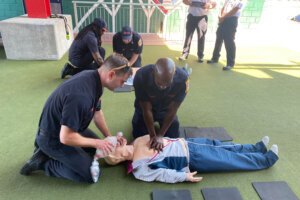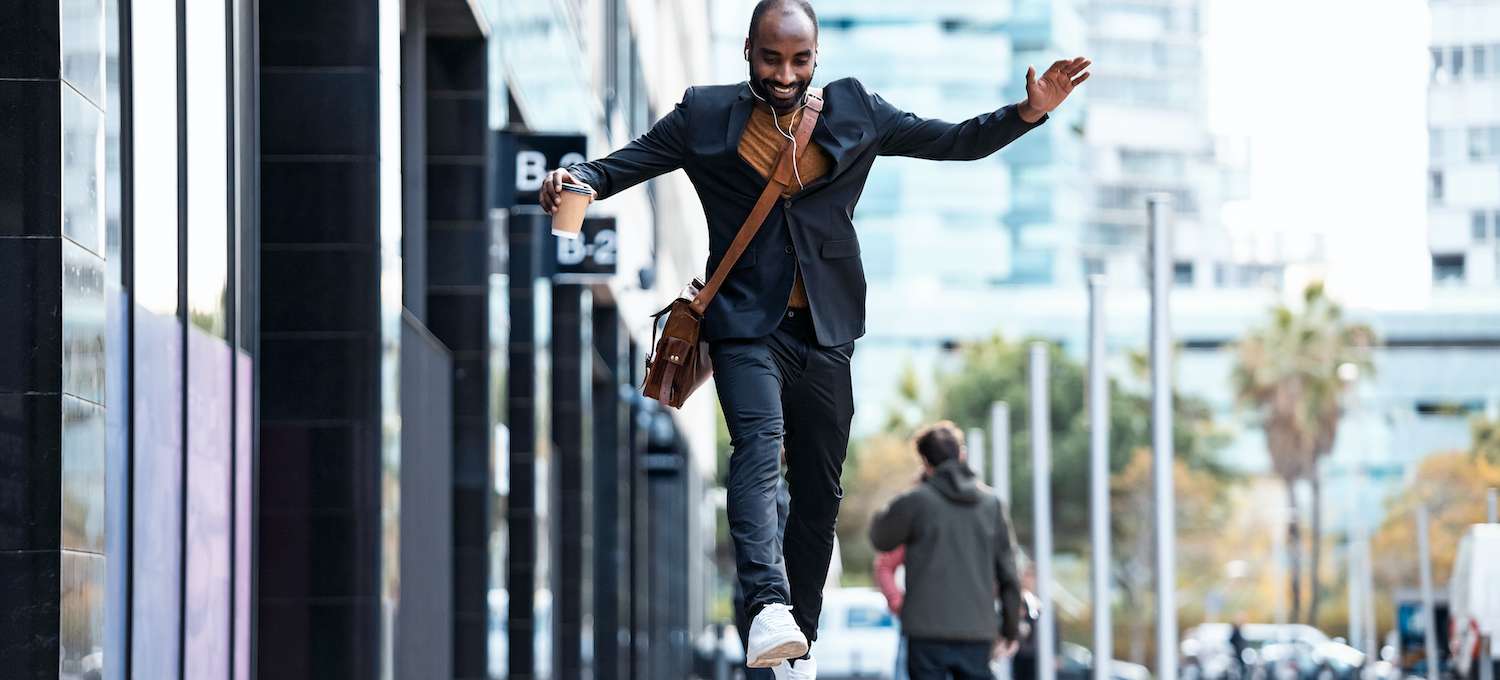Cardiac arrest is reversible in most victims if dealt with within the very first several minutes, but a study found Black and Hispanic grown ups were being 41% a lot less most likely to acquire CPR in public than white persons.
This written content was republished with permission from WTOP’s news companions at Maryland Issues. Signal up for Maryland Matters’ no cost electronic mail membership right now.
In August 2021, Dr. Bryan O. Buckley — a member of the board of directors for the American Coronary heart Association’s Larger Washington Location — assisted help you save a man’s lifetime by administering CPR when he collapsed instantly alongside 3 Notch Trail in St. Mary’s County.
Buckley recalled that Christopher Holton, a Black gentleman in his early 50s, went into cardiac arrest on the path. Holton was “gasping for air,” Buckley mentioned, and when there ended up other bystanders all over at the time, no one particular came forth to consider to offer first aid.
Buckley claimed he had last done CPR some 10 several years back at the time. He asked the bystanders if any of them knew how to carry out CPR, and when a person girl reported she did, she agreed to immediate Buckley on how to offer to start with help. He then executed CPR on Holton for about 20 minutes, right up until unexpected emergency health care solutions arrived. Holton survived the incident.
Holton’s working experience alongside Three Notch Trail tracks with a the latest report highlighted by the American Coronary heart Association, which observed that Black and Hispanic older people are fewer most likely to acquire CPR in general public throughout a cardiac arrest than white People in america.
Scientists analyzed much more than 110,000 records of out-of-medical center cardiac arrests from 2013 to 2019, and discovered that Black and Hispanic grownups ended up 41% fewer likely to acquire CPR in general public than white men and women.

Cardiac arrest is reversible in most victims if treated inside the 1st number of minutes, Wayne Carter, communications director for the American Coronary heart Association’s Baltimore and Increased Maryland Region, wrote in an email to Maryland Issues.
Carter said that though a person’s odds of survival can double or triple if they get instant CPR, bystander CPR is administered significantly less than 50% of the time. The American Coronary heart Affiliation estimates that around 350,000 folks suffer an out-of-clinic cardiac arrest in the U.S. every year.
And Buckley pointed out that when Holton endured his cardiac arrest on Three Notch Trail, the victim, Buckley himself, and Buckley’s good friend with whom he was biking at the time ended up the only Black men and women in the spot.
“Anytime someone has a cardiac arrest, it is a frightening moment,” Buckley explained. “When you are Black or Hispanic, it is even scarier, for the reason that it could be fewer possible men and women would want to interfere.”
Things these types of as opportunity publicity to COVID-19 or likelihood of injuring a victim may also discourage bystanders from wanting to present very first aid, he additional.
Holton echoed that sentiment in an interview with Maryland Matters. The Mechanicsville resident explained of his cardiac arrest together the trail, “I’m just blessed that individuals did not just stroll about top rated of me … I felt blessed that Dr. Buckley and his buddy approached me soon after seeing me tumble.”
In accordance to Holton, it was swift intervention on the element of Buckley and his good friend that compelled other bystanders to approach and talk to if he essential enable. “I do not mean to seem so cynical, but I was blessed that it was two African-American males that really saw me tumble,” he said. “They reacted, and I believe that their reaction helped additional people today get involved than just hold shifting.”
But bystanders would probable be additional at ease providing 1st assist to victims of cardiac arrest with far more publicity to CPR instruction, according to Buckley. He recommended, “making absolutely sure that individuals in large university and faculties have to do a CPR course … Libraries, I believe, are wonderful possibilities as well” for persons to study about CPR or heart wellness in general.
Dr. Athol Morgan, director of cardiology at Grace Medical Middle in Baltimore, stated that communities of color, like the a person he serves, are typically not supplied enough academic and education assets on how to carry out CPR.
“The instruction to do CPR is substantially less” in West Baltimore, Morgan claimed, including that his exercise serves a populace that is about 80% African American. He praised initiatives like Breanna’s Regulation, which has mandated CPR coaching for superior school college students in Maryland given that 2015, but pointed out that non-white, lower socio-economic position communities nevertheless facial area substantial shortages in teaching and assets.
“Everywhere in the planet that men and women have looked in other nations in other situations, neighborhoods that have significantly less — a lot less cash flow, less products and services, less of every thing — have that disparity” in CPR teaching, according to Morgan.
Both Buckley and Morgan highlighted the purpose of tele-CPR — in which a 911 dispatcher talks a caller by way of how to execute the treatment — as a achievable implies to deal with those people disparities in CPR administration.
“I do have a individual who is a cardiac arrest survivor,” Morgan stated. He recalled that his patient was in her 30s when she had a unexpected cardiac arrest at dwelling. “Her sister was there, but her sister did not know CPR,” according to Morgan. “Fortunately, the 911 operator talked her by way of CPR … and if you achieved [the patient] right now, you wouldn’t know that she’s a cardiac arrest survivor.”
Holton explained he put in 14 times recovering from the incident at MedStar Southern Maryland Clinic in Clinton, ahead of going through physical, speech and cognitive rehabilitation at a facility in Takoma Park. He recalled acquiring a pacemaker implanted in September in the function of another cardiac arrest.
“I’m extremely grateful that Dr. Buckley and his close friend took motion to enable me to be below nowadays,” Holton stated. “I can see my daughter excelling in faculty, in athletics and in band,” and glimpse forward to his son’s graduation in November.







